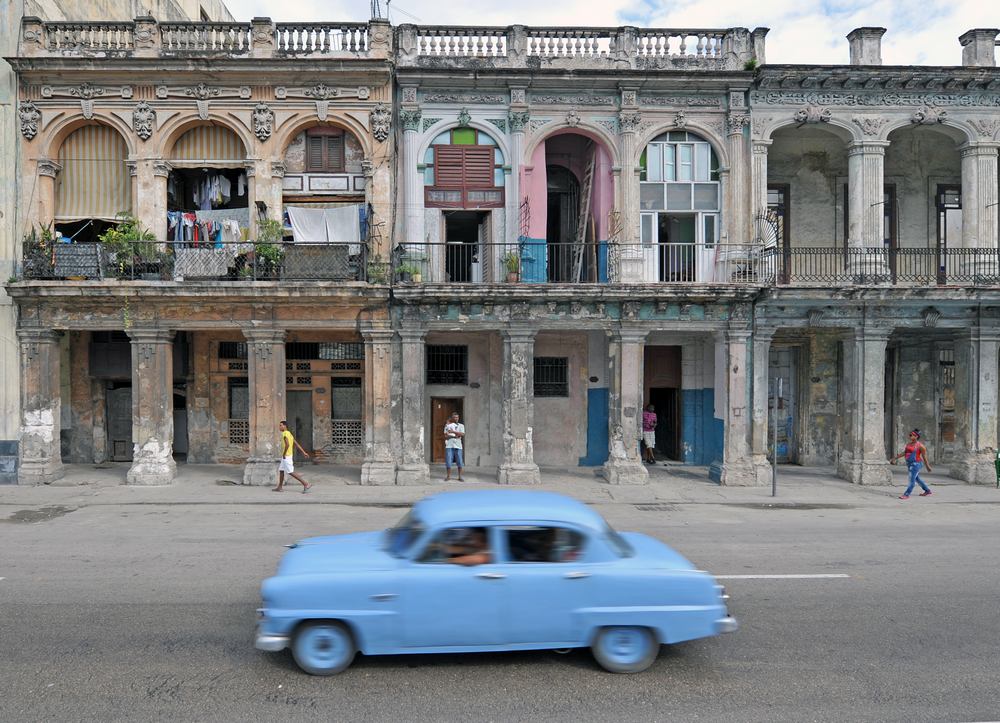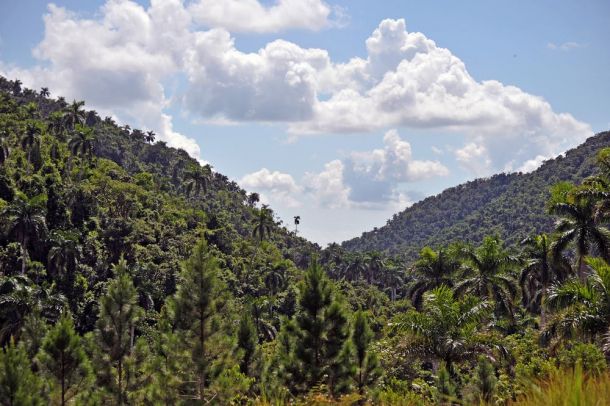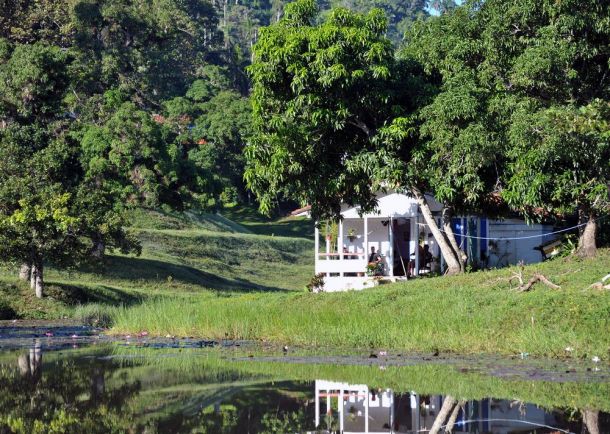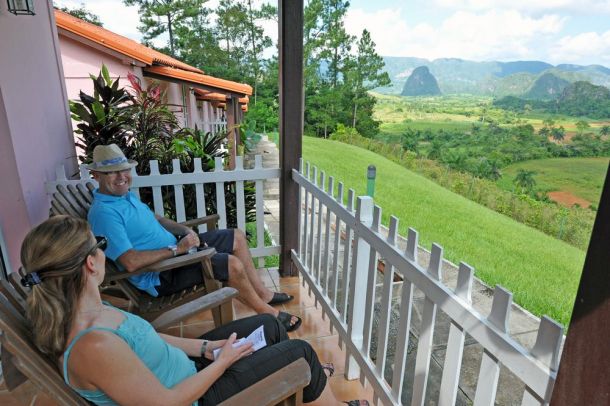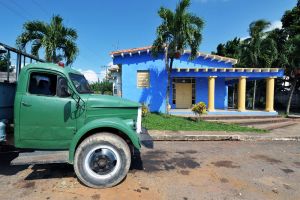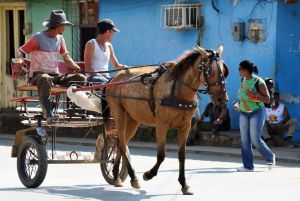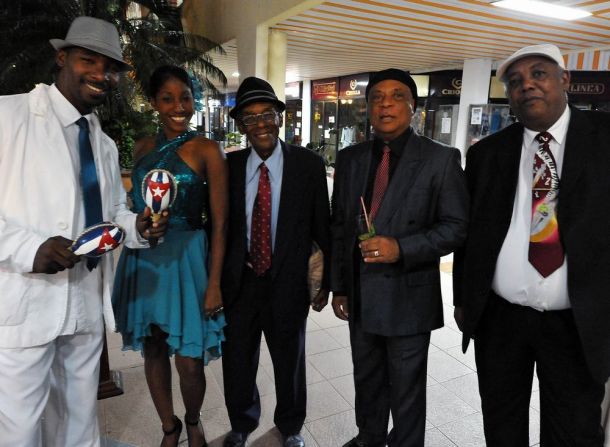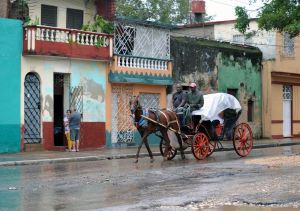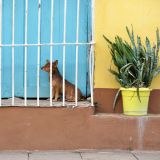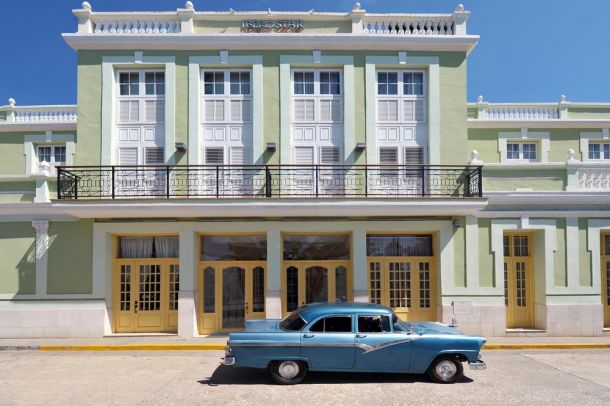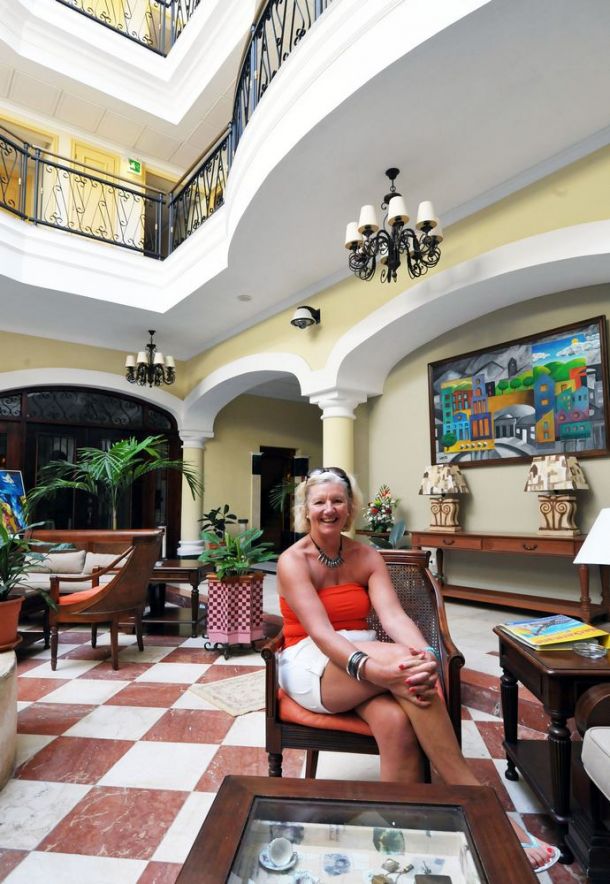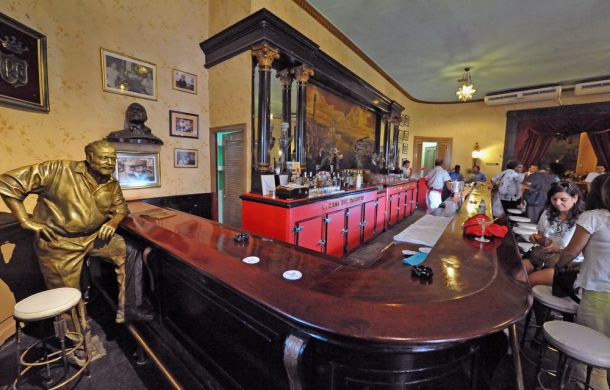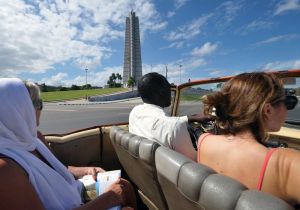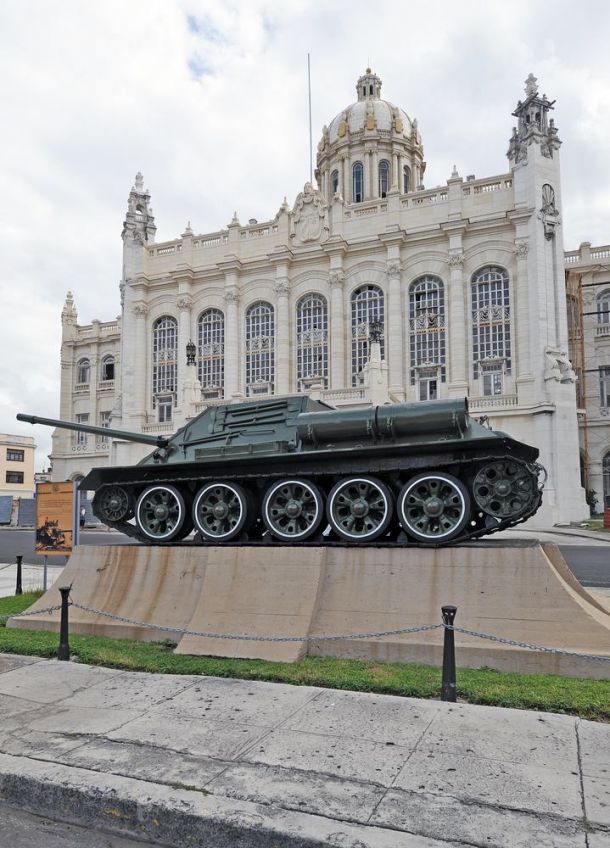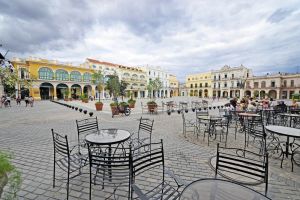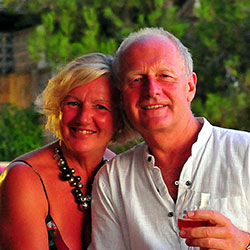There’s never been a better time to go to Cuba – but hurry. You’ll benefit from the gradual liberalisation and relaxation of restrictions on the Cuban people and get there before America invades!
Even as we write this, Carnival Cruises has been granted access to Cuba and the resulting influx of cruise passengers, en masse, will flood Cuba’s available hotel accommodation – so be quick!
Cuba has recognised that their economic system cannot survive without the existence and support of the old USSR and in an inexorable lean towards capitalism has over the last few years actively encouraged its old émigré property owners to return and refurbish their crumbling mansions in order to convert them to homestays and restaurants; as well as revitalising the street scene in many previously dilapidated towns and cities.
Until now, private enterprise was impossible and although food queues are still in evidence and many Cuban people still live deprived lives, there are signs that tourism will regenerate many of the poorer areas. A favourite retort from Cuban children when asked what they want to be when they grow up is ‘A Tourist!’ This is always a double edged sword and much of the charm and character of Cuba will undoubtedly be smothered by the relentless tide of tourism once it gains a hold. Until now large American tours and groups haven’t been permitted access, in favour of individual travel. With the easing of tensions between Cuba and her massive neighbour, America, there will undoubtedly be a significant relaxation of barriers to mass travel.
We don’t think it will be too long before the Spanish colonial heritage hotels, dubious cuisine, Twenties automobiles and friendly but cautious people will be transformed into American style hotel and food chains, compacts and limos and a tourist-savvy population to exploit it. Who are we to decry the impending prosperity of a traditionally poor nation but if you really want to experience a Caribbean country before it once again becomes groomed for pleasure and exploitation (it was Americas playground between the wars) then seriously think about a visit soon as Cuba offers a fantastic insight into the passage of time between American twenties hedonism and the austerity of socialism – but you can still do it in style.
Cherrie: We spent the best part of three weeks travelling around much of Cuba by chauffeur-driven car (which sounds much grander than it was) but it did give us a sense of freedom and independence albeit we had pre-booked the various destinations and hotels to give some sense of structure to our trip. It’s fair to say that we immersed ourselves in much of the beauty, individual character and flavour of Cuba – sufficiently so for it to be one of the most interesting and fascinating countries we’ve visited.
Our route took us from the flair and rhythm of Havana, to the stunning, lush valleys of Vinales, the rather more ‘packaged’ all-inclusive haven of Varadero and down to the beautifully faded World Heritage city of Trinidad, via the Bay of Pigs – travelling on virtually empty ‘motorways’, horse-riding cowboy style through the sugar and tobacco fields, driving an American column-shift classic taxi, crawling around huge wheezing ‘Casey-Jones’ steam engines, rolling our own cigars, dining in private houses and sunning ourselves on windswept Caribbean beaches – a real feast of unforgettable experiences.
In slightly more detail in conjunction with our route map we:
Took time out in Las Terrazas
The ‘Artists’ Colony’ of Las Terrazas is a small community and nature reserve in the Sierra del Rosario mountains west of Havana. It’s worth a visit simply because it differs from most other Cuban villages in terms of its small community of ‘artists’ houses’ set in the reserve which is rich in flora and fauna, with lakes, rivers and waterfalls that warrant exploring on foot. We stayed at La Moka, a modern but comfortable hotel set centrally amidst the community of Las Terrazas.
Viewed in Vinales
Cherrie: Staying in the architecturally exquisite Los Jazmines Hotel is not necessarily the best idea but its adjacent clean and tidy cottages with stunning views on the side of the valley more than make up for any mediocre service and cuisine. We’d advise you to book these in preference to the main building.
To look at the view across Vinales Valley, with the bullock drawn plough way below and strange geological monoliths punctuating the verdant scene in front of you, you’d be forgiven for thinking the scene is out of The Hobbit. It’s one of the most stunning views I think we’ve ever seen. To better experience the valley below we organised horses for a half day trek from the hotel. Cherrie and I are experienced riders, our friends weren’t, but the horses we were riding seemed to accommodate all levels without being soporific.
The steady descent took us to the wide open green valley where we meandered through the beautifully rich farmland scenery with some occasional prodding to encourage the horses to deviate from their preferred path. A short halt at a small farm gave us the opportunity to stretch our legs and participate in a spot of cigar making before the more adventurous among us sampled their work. The trek back was equally as fascinating with the exception that my old Panama hat suffering irreparable damage as it was trampled into a muddy pulp by the following horse; having been swept from my head by an overhanging branch. I now looked much more like a local.
Cherrie: The local town of Vinales is unremarkable but tidy and interesting in reflecting local Cuban life and some of the hostelries adjacent to the hotel offer ‘unforgettable’ dining if you don’t mind wine served in a box and your chicken barbecued by the roadside, all accompanied by tremendously warm and friendly hospitality.
Windswept in Varadero
We’d fancied a bit of beach-time, as it is the Caribbean, during our stay in Cuba and elected to stay at the ‘all-inclusive’ Iberostar Hotel. It’s a lovely hotel with excellent facilities but I have to confess to becoming a bit stir crazy by the end of our short stay as there’s a tendency to become over reliant upon the hotel instead of exploring the surroundings. Nevertheless we did venture out on several occasions, once to play golf in the grounds of Xanadu (the old Dupont mansion) where we also subsequently had an evening meal on a night out in classic American cars on the way to the Buena Vista Social Club gig. It was like tuning up at a Fifties drive-in with all the classic cars and stylishly dressed visitors.
The group excelled themselves with a highly entertaining jazz set, especially as most of them are in their twilight years and the auditorium was more akin to a school assembly hall. The weather was blustery and discouraged lounging around on the beach on one day as we were on the fringe of a hurricane; albeit the gentle rollers and white sands were tranquil on another and the hotel pools provided safe shelter at all times if you were so inclined to be friendly and mix with other humans.
A pig of a time in Giron
Under duress I persuaded our travelling companions, David and Rebecca, to divert our car to Giron and the Bay of Pigs with the argument that having come half way across the world it made sense to see such an historic location and its museum. Not one of my finest moments; Cherrie, David and Rebecca lost no time in constantly reminding me what a miserable two-hour detour en route to Trinidad it was as we struggled along the rain swept October ‘B’ roads, through forlorn towns and villages now deprived of their sugar plantation income, until arriving alongside the bleak shores of the Bay of Pigs and the depressing destination that is Giron.
With the exception of a shed that is the museum housing pictures of the fallen martyrs, a decaying Hawker Sea Fury and Russian tank outside and a couple of billboards proclaiming the first defeat of the Yankee Imperialists, there’s little to recommend my inspiring detour in the interests of historical importance! I insisted that all had experienced a part of Cuba they would not normally have seen. They agreed!
Tradition in Trinidad
If you’re even remotely interested in photography, people and architecture then you could easily take half of all of your pictures from Cuba, in Trinidad.
The World Heritage site of Trinidad is an absolute must visit and is an outstanding destination even if you haven’t been subjected to Giron. Old Trinidad is one of the best-preserved centres in the Caribbean from the time when the sugar trade was the main industry in the region but it now relies upon tobacco processing and tourism. Whilst the surroundings are poor and scruffy, the old part of Trinidad is a beautifully preserved Spanish colonial centre that benefits from not being too artificially groomed, retaining a faded glory that is both charming and authentic.
We walked into a museum in the centre, admiring the stunning silver and porcelain table settings of an old colonial residence, only to find that it was a restaurant run by a returning and incentivised émigré. We booked for dinner, although we didn’t tell David and Rebecca that we’d seen the very rudimentary, if not totally inadequate kitchen and in the evening were dragged onto the ‘dancefloor’, or spaces between the tables, for an embarrassing twirl with some overly made-up and traditionally costumed dancers.
Cherrie: We again stayed in an Iberostar, this time the Grand Hotel which was close to and a perfect complement to the old town; reflecting the architecture of a grand Spanish mansion and fulfilling all of our expectations of a modern quality hotel tastefully presented in colonial Spanish style.
Whilst here we spent a day travelling through the Valley de los Ingenios (slavery and sugar since 1512) to the Ancon Peninsula for a short laze on the beach (very low threshold of boredom) but en route I stopped our car – this time an old Chevy BelAir American classic taxi to take photos of a huge wheezing steam loco seemingly waiting for its end in a siding but amazingly still in service – and then cajoled the nervous taxi driver to let me drive his piece of column-shift history to the beach. He visibly relaxed as he took the keys back from me.
Simply Cienfuegos
I failed dismally to persuade anyone to divert to the city of Santa Clara, site of the last and most decisive battle of the Cuban revolution in 1958 (Batista fled the country less than 12hrs later) and final resting place of Che Guevara, in the interests of historic significance and me getting pictures of Guevara graffiti on the walls, as Giron was obviously still unforgiven by my companions, and had instead to settle for a brief visit for lunch into Cienfuegos as its only about an hour away from Trinidad and on the way back to Havana. It’s remarkable for being the only town of French architecture in Cuba and as such features wider boulevards and an area of imposing fifties houses.
We lunched at the Palacio de Valle, an imposing and highly ornate edifice, once a Moorish mansion, whose presentation far outstrips its culinary accomplishments but is worth the visit simply for the ability to explore the building and see the views.
Rocked in Havana
Havana encapsulates all Cuban history within a single city and is a must for lovers of the bizarre and beautiful. Architecturally, culturally and artistically Havana can’t fail to excite and fascinate you; giving a real sense of participating in the transition of a country from capitalism through socialism and back again in all respects before your very eyes.
Cherrie: No visit to Havana is complete without tracing the footsteps of Ernest Hemmingway – “My Mojito in the Bodeguita del Medio and my Daiquiri in the Floridita” as he supposedly put it himself. We concur! Although the dubious cuisine of Cuba is almost legendary there are several restaurants who have elevated the art of cooking far beyond the commonplace and we particularly enjoyed the Café del Oriente in Plaza San Francisco, Old Havana, which lacks the flashiness of some of the more up-market establishments but impressed us with its old world refinement, understated elegance and excellent cuisine. Although you can sit outside in the main square, we elected to eat inside on the more inviting ground floor in the evening. The quality menu is both cosmopolitan and adventurous. It’s a good start-point from which to plan your tour of old Havana whilst listening to the tinkling of the grand piano and whilst the tuxedo clad waiters were a joy, one of their female counterparts was positively acidic but a perfect and ultimately forgivable complement to the sweet crepes after our exquisite filet main course.
Jazz and Blues chords on every corner was very much our expectation in Havana and whilst it was in evidence in some bars it wasn’t necessarily as prevalent as we might have expected. However, the Tropicana at Salon Bajo Las Estrellas (‘Room under the stars’) will probably provide you with all the 50’s music you’ll need. If you’re used to slick Vegas shows then Tropicana will be a big disappointment but if you factor in the open air, tropical palms, the endless costume changes, music, choreography, vitality and energy of the two hundred Cuban dancers and a bottle of Rum then you’ll undoubtedly have fun. Don’t set your expectations too high, don’t get too close to the front, don’t expect a wonderful meal but do go prepared to enjoy yourself – remember you’re in a less prosperous foreign country that’s doing its level best to entertain you.
Do take advantage of a city tour in an open top American classic car. They’re not going to be around for long as we expect many will be ‘repatriated’ to America in the coming years as collector’s items and although many seem to be held together with chewing gum and Sellotape they’re still very much part of the Havana scene and a great way to travel. Occasionally you’ll find a row of better preserved examples on the far side of Parc Central behind the Capitolio government buildings and it was here that we also discovered a steam engine ‘graveyard’ guarded by a uniformed ‘official’ who after a few gestures permitted us access to crawl around a veritable history lesson in Cuban rail transport.
We spent a whole day just walking around Havana – from the Plaza Vieja, historic site of processions, bullfights, fiestas and executions but now a beautifully restored masterpiece of Spanish colonial architecture; through much of the original crumbling beauty of yet to be rejuvenated boulevards; along the wave swept Malecon to the old Mafia haunt of Hotel Nacional and back through a maze of roads to our own hotel – the grand and imposing Hotel Parque Central at the hub of Old Havana, which is far more impressive inside than out. An evening walk into the backstreets beyond the hotel in order to find a little homestay restaurant was as ill-advised from a personal security point of view (although we encountered no actual problems) as it was fascinating from the experience of actually enjoying a thoroughly pleasant meal in someone’s highly ornate and original dining room.

 Let us plan your own inspiring journey to Cuba and throughout Central & S. America
Let us plan your own inspiring journey to Cuba and throughout Central & S. America
Why not download the TLC World guide brochure or give us a call today on 01202 030443, or simply click ‘enquire’ to submit your own personal itinerary request
![]()

